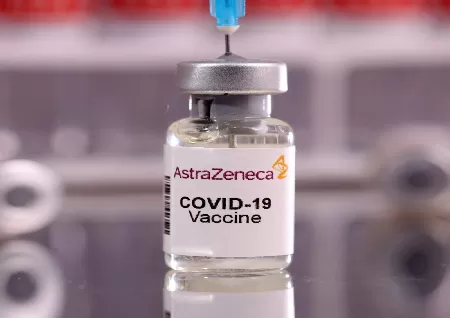Indian Medical Experts Support Call For Covishield Vaccine Safety Review

Dr. Aseem Malhotra, a physician with training from the National Health Service (NHS) who has had two doses of the COVID-19 vaccine, is already spearheading demands for the withdrawal of Pfizer's mRNA COVID vaccination on a global scale. London: On Monday, a number of Indian medical professionals backed demands from a renowned British-Indian cardiologist for a thorough safety assessment of the use of the COVID-19 vaccine from Oxford/AstraZeneca, sold as Covishield in India, because to its expected severe adverse effects, including heart attack and stroke. Following the publication of peer-reviewed research last year warning that the risks may outweigh the benefits for the population, Dr. Aseem Malhotra, a doctor trained by the National Health Service (NHS) who has received two doses of the COVID-19 vaccine, is already leading international calls for the suspension of Pfizer's mRNA COVID vaccine majority of individuals. This week, he is in India giving a series of talks about COVID vaccinations in an effort to provide a "evidence-based argument" against their suspension. "It is unusual that India didn't cease its usage also," said Dr. Malhotra. "The use of the AstraZeneca COVID vaccination was banned in a number of European nations in early 2021 because to the relation to major adverse effects." Before Pfizer's mRNA vaccine replaced it in the UK, the number of reports of side effects that were more severe than moderate was unparalleled (800,000 reports after 9.7 million doses). " According to pharmacovigilance data, peer-reviewed study released in June 2021 found that the AstraZeneca COVID vaccination had a lower safety profile for critical harmful consequences for heart attack, stroke, and mortality in both younger and older persons compared to Pfizer's mRNA vaccine," he added.
Prior to his lecture trip this week in New Delhi and Mumbai, his analysis has received the support of medical specialists in India.A significant all-cause mortality rate is seen during COVID-19 immunisation programmes, according to population-level data from numerous nations. These data supplement anecdotal stories of unexpected fatalities throughout the globe. In a statement issued by Dr. Malhotra, epidemiologist and professor and head at DY Patil Medical College in Pune, Dr. Amitav Banerjee stated, "We should halt at these red lights before going ahead carelessly." "Covishield, a vaccination that is widely administered in India, poses a double whammy of danger." Its usage was restricted in the majority of European nations because of dangerous side effects such blood clots, but it also posed a myocarditis risk. There is growing evidence that the mRNA vaccinations are responsible for this cardiac disease. The DNA gene on an adenovirus that Covishield contains is likely unknown to many people. After injection, the virus becomes body is transformed into mRNA, "explained him. "We should immediately stop COVID-19 immunisation until these difficulties are answered by researchers without any conflicts of interest," he continued, "given the current epidemiology of COVID-19 in our country and the weak system for recognising adverse events following immunisation (AEFI)".
Universal vaccination should be rethought, according to Dr. Sanjay K. Rai, Professor at the Centre for Community Medicine at the All India Institute of Medical Sciences (AIIMS) in New Delhi. The bulk of the Indian population has already been exposed to SARS-CoV-2. Natural infection offers stronger and more enduring protection than any vaccine alone, according to studies from throughout the world. Currently, there is no mandate for everyone to receive the COVID-19 vaccine. He issued a statement that read, "This could do more harm than good." The Oxford/AstraZeneca COVID-19 vaccine, produced and administered in India as Covishield, is "safe and effective for all persons aged 18 and above," according to the World Health Organization's (WHO) recommendations. " The Astra-Zeneca vaccination is accessible to anyone who have previously received COVID-19 before. However, the WHO recommendation from June 2022 states that "individuals may choose to postpone immunisation for three months following the illness."
Related queries to this article
- Dr. Aseem Malhotra
- Indian Medical
- Oxford
- Covid shield Vaccine
- Safety Review
- COVID-19
- mRNA COVID vaccine
- COVID vaccinations
- AstraZeneca COVID vaccination
Read more articles and stories on InstaSity Latest News.





